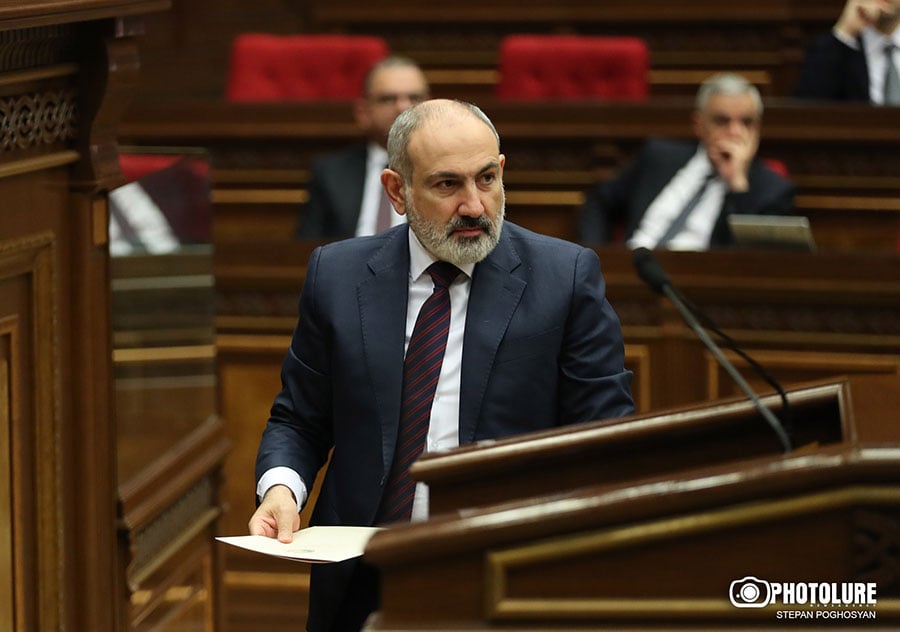Prime Minister Nikol Pashinyan has signaled that he is in no rush to try to enact a new Armenian constitution demanded by Azerbaijan.
Pashinyan first called for such a constitutional change in January, saying that it must reflect the “new geopolitical environment” in the region. Analysts believe that he first and foremost wants to scrap a preamble to the current constitution which makes an indirect reference to a 1989 declaration on Armenia’s unification with Nagorno-Karabakh and calls for international recognition of the 1915 Armenian genocide in Ottoman Turkey.
Azerbaijani President Ilham Aliyev said in early February that Armenia should remove that reference and amend other documents “infringing on Azerbaijan’s territorial integrity” if it wants to make peace with his country. Armenian opposition leaders portrayed Aliyev’s statement as further proof that Pashinyan wants to change the constitution under pressure from Azerbaijan as well as Turkey. The premier and his allies denied that.
Amid a mounting opposition outcry, one of those allies, parliament speaker Alen Simonyan, insisted on February 27 that Armenia’s leadership has not made a final decision on the issue. He claimed that it simply wanted to trigger a public debate and gauge Armenians’ reaction to the idea.
Read also
Pashinyan defended the idea when he visited Gyumri and met with local members of his Civil Contract party at the weekend. But he said his detractors were wrong to expect him to swiftly hold a referendum needed for replacing the current constitution because he wants to “create a constitution together with the people.” He gave no possible dates for the referendum.
“If you ask me what should or should not be written in that constitution I may have some thoughts. But that constitution will not exist as long as it doesn’t exist in people’s minds. If it doesn’t, why would 700,000 people vote for it?” he said, citing the minimum number of votes legally required for the passage of the new constitution.
Pashinyan has repeatedly called for major constitutional changes and made conflicting statements about them during his nearly six-year rule. Two years ago, he set up a new body tasked with coordinating the constitutional reform process. The body now headed by Justice Minister Grigor Minasian drew up with a “concept” for the reform shortly before Pashinyan made the case for the new constitution.
Minasian said on Tuesday that he and other members of the council now “waiting” to meet Pashinyan to see whether they have to amend that document in accordance with the “new ideas” floated by the premier.



















































